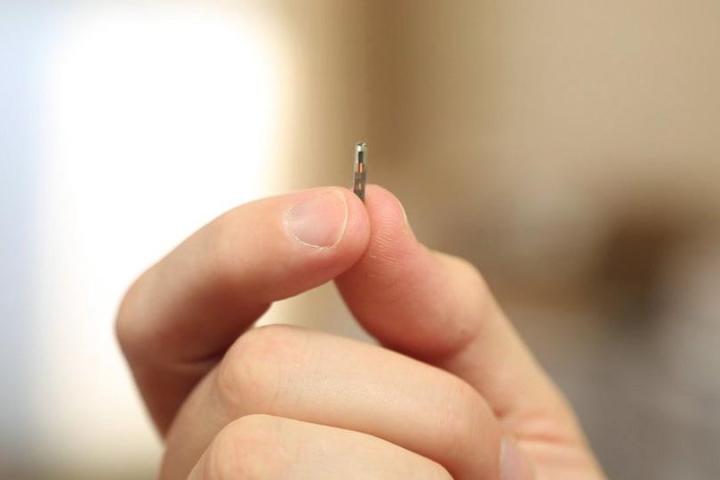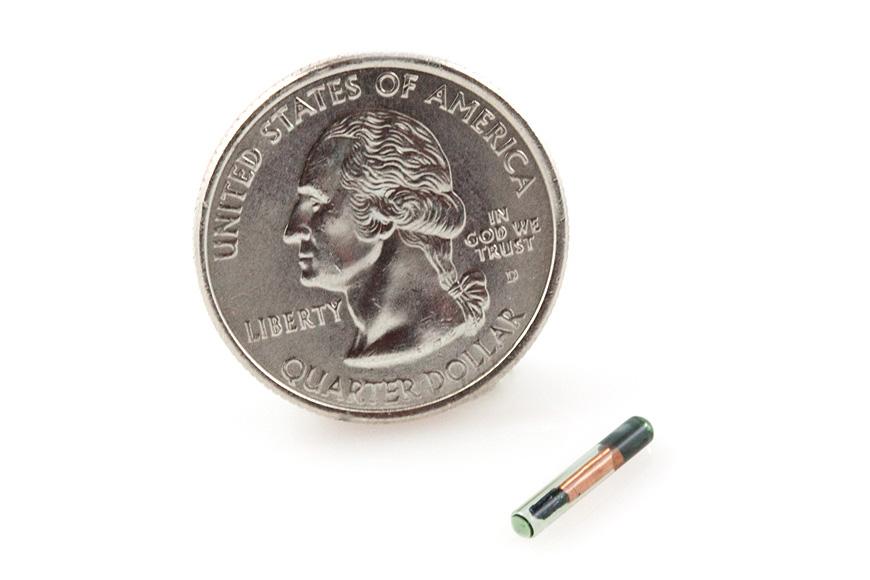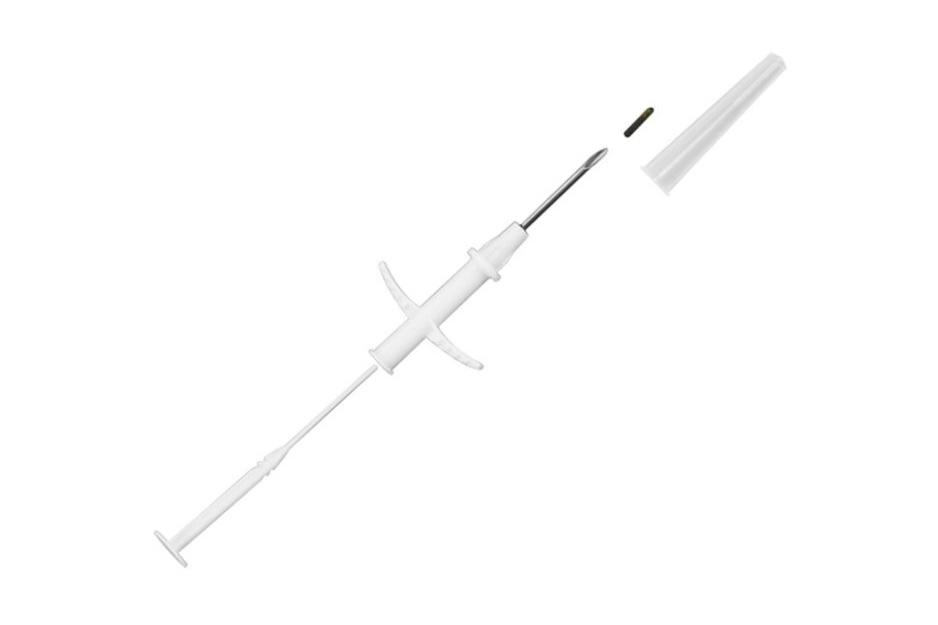
After mounting a successful crowdfunding campaign on Indiegogo toward the end of last year, Dangerous Things is now ready to ship its xNT implant to consumers later this month.
For those of you who may be unfamiliar, the xNT is an ISO/IEC 14443-A and fully NFC Type 2 compliant NTAG216 RFID chipset encased in a 2×12 mm cylindrical USP grade lead-free Schott 8625 biocompatible glass casing. In plain English, that basically means it’s a tiny capsule designed to be inserted into your body (usually in your hand) that’s outfitted with a special chip that allows you to interact with a wide variety of other NFC-equipped devices by simply waving your hand or entering a room.
Technologically speaking, the device isn’t particularly noteworthy. There already are a number of different wearable devices on the market that allow you to control things via NFC — rings, wristbands, and even NFC tags you can stick on stuff. The tech is fairly common, but what’s significant about xNT is that it’s one of the first ready-made DIY bio-hacking kits that’s aimed toward consumers. It ships with everything you need to implant it in your body.
Up until this point, most high-tech implants were either inserted by trained professionals, like doctors and surgeons who did it for medical purposes, or intrepid bio-hackers who were brave and/or crazy enough to do it themselves. This DIY kit changes everything — never before has there been such an easy way to become a cyborg.
The $99 kit ships with the xNT capsule contained in a sterile syringe, so you can insert it yourself, or head to a piercing or body modification specialist to give you a hand. Dangerous Things even sells a special “pain management kit” if you’re not sure whether you’re tough enough to handle the procedure.
As we mentioned before, you can already interact with and control NFC devices with a variety of different wearables, so while we’re not entirely convinced that implanting an NFC chip into your body is necessary at this point, it’s exciting to think about what the future of DIY implants might hold.
What do you think? Would you put one of these things in your body? Sound off in the comments below.






